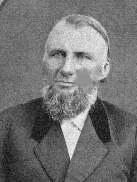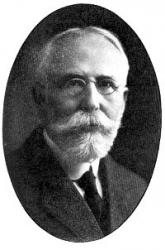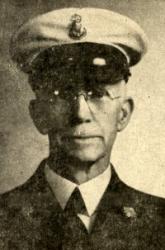
1794 - 1849 Person Name: William B. Tappan, 1794-1849 Hymnal Number: d302 Author of "Olive's Brow" in The Hymnal, a Collection of Gospel Songs and Hymns See also in:
Hymn Writers of the Church
=============================
Tappan, William Bingham, was born at Beverley, Massachusetts, Oct. 29, 1794, and was apprenticed to a clockmaker at Boston in 1810. In 1815 he removed to Philadelphia, where he was engaged in business for a time. In 1822 he was engaged as Superintendent of the American Sunday School Union. In 1840 he was licensed to preach with the Congregational body, his sphere of usefulness on behalf of Sunday Schools being thereby considerably widened. He died suddenly, of cholera, at West Needham, Massachusetts, June 18,1849. His poetical works include:— (1) New England and Other Poems, 1819; (2) Poems, 1822; (3) Lyrics, 1822; (4) Poetry of the Heart, 1845; (5) Sacred and Miscellaneous Poems, 1848; (6) Poetry of Life, 1848; (7) The Sunday School and Other Poems, 1848; (8) Late and Early Poems, 1849; (9) Sacred Poems, 1849; (10) Gems of Sacred Poetry, 1860.
Of these works the earliest are the most-important. His hymns in common use include the following:—
1. Holy be this as was the place. Public Worship. Included in his Lyrics, 1822; and given in Lyra Sacra Americana, 1868.
2. The ransomed spirit to her home. Love. Appeared in Nettleton's Village Hymns, 1824. This is probably his best hymn.
3. There is an hour of hallowed peace. Heaven, a Place of Rest. Given in his New England and Other Poems, 1819.
4. There is an hour of peaceful rest. Heaven a Place of Rest. The author's account of this hymn in his Gems of Sacred Poetry, 1860, is that it "was written by me, in Philadelphia, in the summer of 1818, for the Franklin Gazette, edited by Richard Bache, Esq., and was introduced by him to the public in terms sufficiently flattering to a young man who then certainly lacked confidence in himself. The piece was republished in England and on the Continent, in various newspapers and magazines, and was also extensively circulated in my own native land, where it has found a place in several hymn and music-books. It was published in my first volume of Poems, at Philadelphia, in 1819, and soon after was set to music by A. P. Heinrich, Esq., in the same city." It is in Lyra Sacra Americana, 1868, p. 265.
5. 'Tis midnight, and on Olive's brow. Gethsemane. Appeared in his Poems, 1822, and repeated in Lyra Sacra Americana, 1868, and several hymnals.
6. Wake, isles of the south, your redemption is near. Missions. Appeared in the Lyrics, 1822. It was sung at the wharf in New Haven at the embarkation of Missionaries for the Sandwich Islands, 1822.
7. When sorrow casts its shades around us. Resignation. From his New England and Other Poems, 1819. It is in Lyra Sacra Americana, 1868.
8. While the solemn note of time. Saturday Evening. Published in his Poems, 1822; repeated in Lyra Sacra Americana, 1868, and thence into Thring's Collection, 1882. [Rev F. M. Bird, M.A.]
--John Julian, Dictionary of Hymnology (1907)
William B. Tappan




